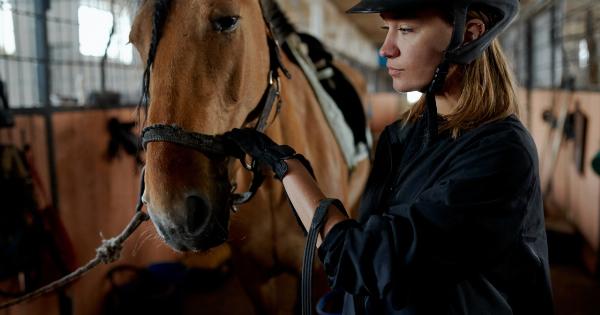Pet animal welfare is an issue of great concern in our society. Many pets are subjected to neglect, abuse, and abandonment, leading to immense suffering and even death.
It is crucial to address these issues and implement necessary measures to protect the welfare of pet animals. One such solution is Harakopoulos’s Bill, a comprehensive proposal aimed at improving pet animal welfare. This article will delve into the various provisions of the bill and discuss its potential impact on pet animal welfare.
Background
Before diving into the details of Harakopoulos’s Bill, it is essential to understand the current state of pet animal welfare. Countless pets are mistreated and rendered vulnerable due to lack of legislation and enforcement.
Animal shelters are often overcrowded, leaving many animals without proper care. The need for effective measures to safeguard pet animal welfare becomes evident in such circumstances.
Harakopoulos’s Bill: An Overview
Harakopoulos’s Bill is a comprehensive legislation proposal that addresses several aspects of pet animal welfare. It aims to enforce stricter regulations, promote responsible pet ownership, and improve the overall well-being of pets.
Let’s explore some of the key provisions of the bill.
Licensing and Registration
One of the primary focuses of Harakopoulos’s Bill is the implementation of a robust licensing and registration system for pet owners. This provision ensures that all pet animals have a registered owner who is accountable for their welfare.
It also includes regular renewals and updates to ensure compliance with regulations.
Stricter Animal Cruelty Laws
Harakopoulos’s Bill proposes the enhancement of animal cruelty laws to ensure that offenders are held accountable for their actions.
The bill includes stricter penalties and sentences for those found guilty of abusing, neglecting, or harming pet animals. This provision aims to deter potential offenders and provide justice to the victims.
Educational Programs
An integral part of the bill is the provision for educational programs focused on promoting responsible pet ownership and animal welfare.
These programs would be conducted in schools, community centers, and other public platforms to raise awareness about the proper care and treatment of pets. By educating the public, the bill seeks to prevent instances of neglect or mistreatment due to lack of knowledge or awareness.
Mandatory Spaying and Neutering
Harakopoulos’s Bill includes a requirement for mandatory spaying and neutering of pets, unless authorized by a licensed veterinarian for specific breeding purposes.
This provision aims to control the pet population, reduce the strain on animal shelters, and prevent the abandonment of unwanted litters. It promotes responsible pet ownership by discouraging backyard breeding and uncontrolled breeding practices.
Improved Animal Shelters
The bill emphasizes the need for improved animal shelters that provide adequate housing, medical care, and attention to all animals under their care.
It encourages stricter regulations for shelters, regular inspections, and enforcement of quality standards. By ensuring the well-being of animals in shelters, the bill aims to reduce overcrowding and improve the chances of finding suitable homes for pets.
Enhanced Veterinary Care
Harakopoulos’s Bill promotes access to quality veterinary care for all pet animals. It recognizes the importance of regular check-ups, vaccinations, and medical treatments to maintain their health and well-being.
The bill encourages affordable veterinary services and urges pet owners to prioritize the healthcare needs of their pets.
Promotion of Adoption
Another crucial aspect of the bill is the promotion of pet adoption.
By collaborating with animal shelters and rescue organizations, the bill aims to increase awareness about the benefits of adopting pets rather than buying them from breeders or pet stores. This provision aims to reduce demand for bred animals and prioritize the rescue and rehoming of abandoned or neglected pets.
Enforcement and Oversight
Harakopoulos’s Bill stresses the importance of effective enforcement and oversight to ensure compliance with all the proposed regulations.
It calls for the establishment of dedicated animal welfare departments or agencies responsible for monitoring and enforcing pet animal welfare laws. Regular inspections, reporting mechanisms, and appropriate action against offenders are key components of this provision.
Conclusion
Harakopoulos’s Bill presents a comprehensive solution for addressing the issues surrounding pet animal welfare.
Through its provisions, such as licensing and registration, stricter animal cruelty laws, educational programs, mandatory spaying and neutering, improved shelters, enhanced veterinary care, and promotion of adoption, the bill seeks to safeguard the welfare of pet animals and promote responsible ownership. It is crucial for society to support and implement measures like this to ensure a harmonious and compassionate coexistence between humans and their beloved pets.































